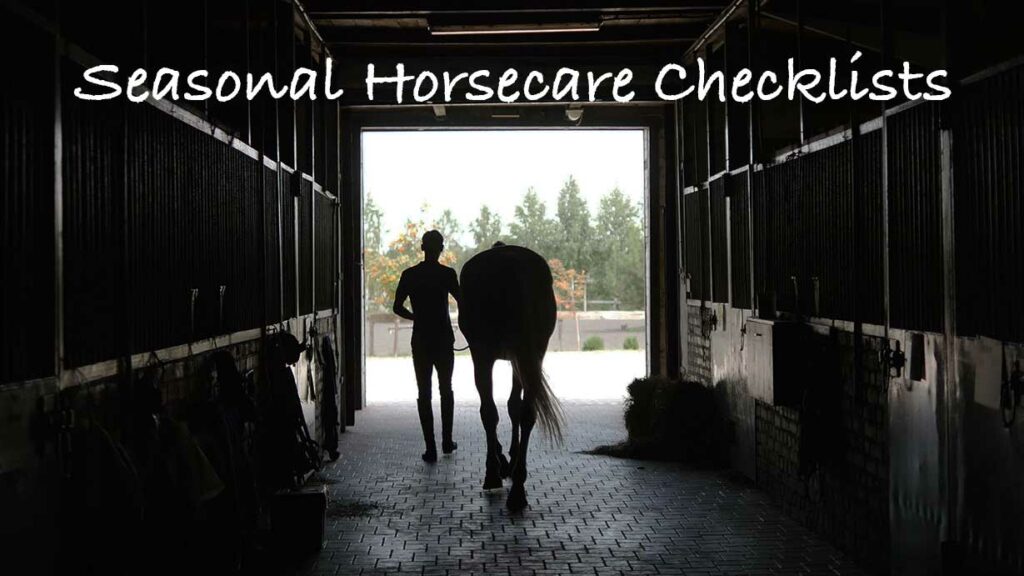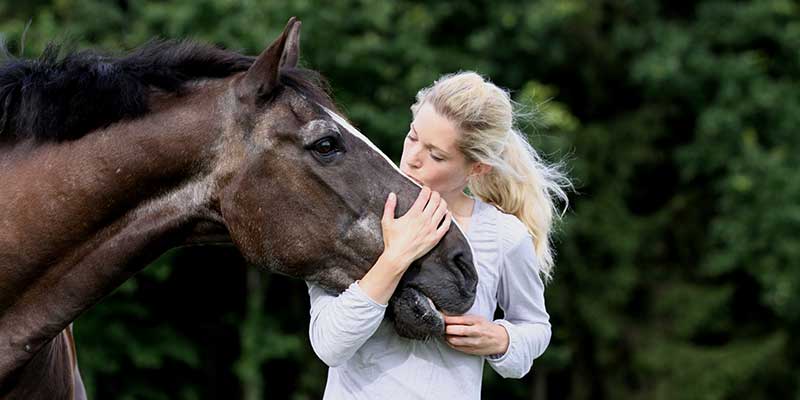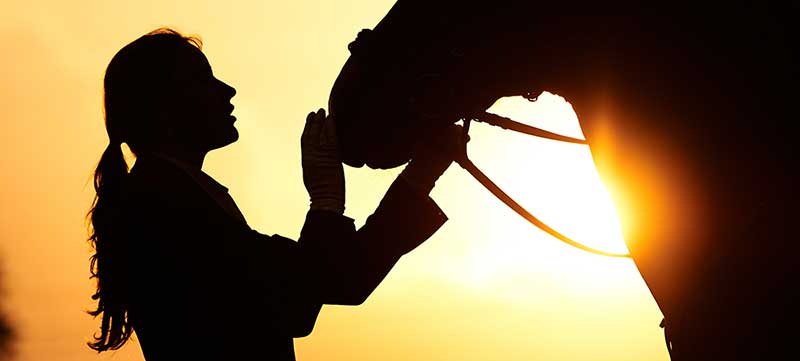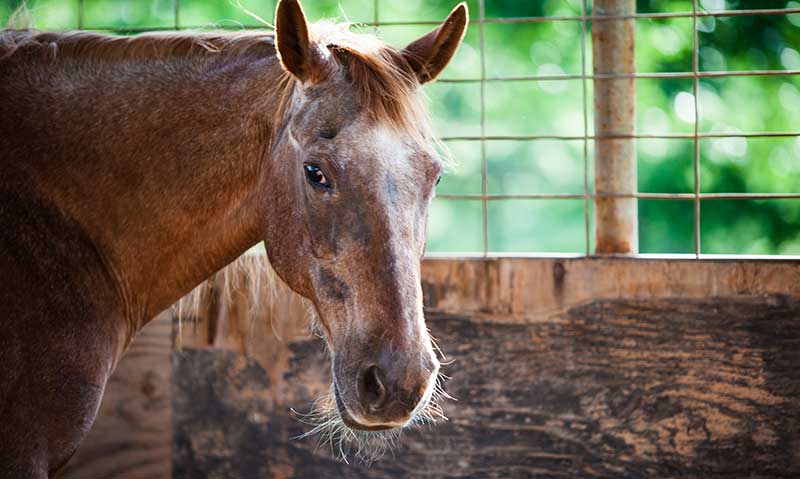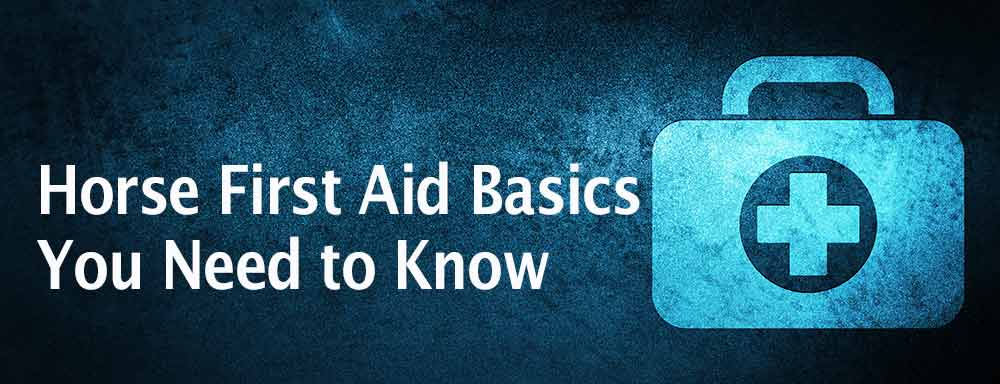Your Seasonal Horse Care Checklist Hub
Know how to care for your horse based on the season and changing weather demands
Your horse’s needs change with the seasons. Blanketing, extra electrolytes, providing shade, hoof care, brushing and grooming, and exercise duration and timing all fluctuate based on the season.
Along with being in-tune with your horse’s signals and day-to-day needs, you need to stay on top of how your horse is thriving and responding to the temperature and their environment.
Use this seasonal horse care checklist hub as your information hub for all aspects of seasonal horse care, including:
- 7 keys to caring for your horse in the fall
- 7 essentials to winter horse care
- 9 winter horse care myths busted
- Hot weather horse riding and care tips
- General horse care tips including first aid, nutrition, and joint health
Always contact your veterinarian with your questions about your horse’s health and behavior.
Your Fall Horse Care Checklist
These 7 fall horse care essentials are a good refresher of things to keep in mind as you get ready for fall:
- Monitor your horse’s caloric intake: fall is a transition period for your horse’s diet. Many horse owners ride less due to cooler weather – when this happens you need to adjust your horse’s nutrition.
- Ensure your horse is up to date on deworming: parasites have a relentless lifecycle, and their eggs often thrive when the weather cools down. Make sure you know the signs of a parasite infection and contact your veterinarian if you see any symptoms.
- Add more hay to your horse’s diet: increasing hay to your horse’s diet during the fall is critical since they have less fresh grass to eat. Make sure you follow the recommendations from the Association of Equine Practitioners on the amount of hay to feed your horse.
- Review your horse’s overall health and wellness: stay on top of your horse’s day-to-day health needs including hoof, teeth, coat, and joint care. Remember your horse is adept at hiding signs of discomfort.
- Keep an eye out for laminitis: this common horse condition can happen at any time of the year, but horses in the early stages of Cushing’s Disease or with insulin resistance have an increased chance of getting this inflammatory disease in the fall.
- Check for drafts in your barn: fall is the ideal time for you to check your barn and outdoor sheds for drafty areas. It’s important to find the balance between easy access to fresh air and eliminating bone-chilling drafts.
- Make gradual exercise changes: pay attention to how your horse responds to any changes in exercise and scheduling. If your horse shows signs of not wanting to ride or seems agitated, these can be indicators your horse is not adjusting to schedule changes.
Read our Fall Horse Care Checklist: 7 Horse Care Tips to Remember blog for in-depth details about these 7 essential fall horse care must-do’s.
Your Winter Horse Care Checklist Guide
Your horse should not shiver, lose weight, or stop exercising in the cold months. Attention to winter horse care is important regardless of the amount of snowy, rainy, and sub-zero days you experience.
Remember these 7 basics of winter horse care:
- Proper winter shelter: a safe, sturdy shelter helps your horse stay warm and protected from snow, rain, sleet, wind, and damp. Horses intuitively use shelter when the weather is at its worst – make sure your horse has an accessible stable or open-sided shed.
- Pay attention to calories: horses struggle to stay warm in cooler weather and this translates to needing more calories to maintain weight. Pay attention to fluctuations in the weather forecast and how these impact your horse’s eating habits.
- Keep your horse drinking: your horse needs more water in the winter – this is a fact. At a minimum, your horse needs to drink 5 liters for every 100kg of body weight daily. Read our How to Care for Your Horse in the Winter blog for tips on how to get your horse to drink in the winter.
- Winter exercise is a must: the winter weather is not a reason to limit exercise or to stop riding. Doing so can result in health conditions such as lower leg swelling. Use your judgement about winter exercise based on the weather and ground conditions.
- Keep hooves healthy: always check your horse’s hooves for accumulated balls of ice or snow. A buildup of snow or ice makes it difficult for your horse to walk properly, causing balance issues, and ultimately damaging tendons or causing your horse to slip and fall.
- Be aware of skin and coat issues: maintain a regular bathing schedule and use warm water and a damp sponge to care for your horse’s coat and skin. Keep up your regular grooming and brushing routine – your horse enjoys this, and it keeps their coat healthy.
- Know when to blanket: in general, you want to wait until after the winter solstice to blanket your horse. Remember to keep the blanket dry, make sure it is not chafing or rubbing, and to only blanket a dry horse.
Winter horse care comes down to paying attention to the details. Read How to Care for Your Horse in the Winter where we discuss the 7 essentials of winter horse care in more detail.
Share the Grand Meadows Busts 9 Winter Horse Care Myths blog with friends and family who are new to horses and riding. And yes, we do hear these myths more often than we’d like to admit!
Your Summer Horse Care Checklist
The summer weather puts your horse at risk for dehydration, heat-stroke, sunburn, fatigue, diarrhea, colic, and a general feeling of exhaustion.
As you plan your summer riding season, keep in mind these basics of summer horse care:
- Your horse and hot summer riding and work: your horse’s mood, energy levels, skin and coat health, and drinking habits are affected by the heat and humidity. We highlight 4 factors you need to remember when you take your horse out for exercise in the summer.
- How to keep your horse hydrated: hot weather is very draining on your horse and puts them at risk for dehydration. It’s important that you keep tabs on your horse’s hydration levels – paying attention to how much your horse is sweating, their mood, how much (or how little) they are drinking, and your horse’s appetite. Make sure you know our 4 tips to help keep your horse hydrated.
- How to keep your horse safe and comfortable in hot weather: read and share our 9 tips on how to keep your horse safe and comfortable in hot weather. Tips like being aware of sunburn and slowing down and taking breaks in hot weather may seem obvious, but it’s super easy to lose track of how long you’ve been outside with your horse.
- The signs of heat stroke in horses: in our summer horse care blog we emphasize 4 signs of heat stroke in your horse. Please memorize these and talk to your riding friends about heat stroke and make sure they know the signs of heat stroke.
Remember, if it feels hot to you – then it’s too hot for your horse. Don’t take risks with your horse’s health for the sake of a ride.
Horse Care Articles and Resources
These articles are a great resource, for experienced and new horse riders and owners:
- 9 Signs of a Healthy Horse You Need to Know
Learn how to monitor your horse’s vital signs, appetite and water consumption, bowel movements, gum color, hoof health, mood and behavior, gut noises, coat health, and body weight. - How to Check Your Horse’s Temperature, Pulse, and Respiration Rate
When you have a baseline for your horse’s temperature, pulse, and respiration (TPR) rate you can more easily and quickly catch health problems. Learn why you need to check your horse’s TPR and how to safely monitor these vital signs. - Feeding Your Horse: 5 Horse Nutrition Tips and Advice for a Healthy Horse
To ensure nutritional balance, you must understand the ins and outs of your horse’s nutritional needs. Just like us humans, your horse is what they eat. Remember these 5 horse nutrition tips to help keep your horse healthy and active. - 5 Things You Need to Know About Your Horse’s Teeth
The health of your horse’s teeth and gums tell you a lot about their overall health and wellness. Learn the signs of tooth and gum discomfort and how to properly care for your horse’s teeth. - Horse Hoof Care: What You Need to Know
Ensuring your horse has healthy, strong, and well-cared for hooves is an essential part of horse ownership and riding. Learn about horse hoof basics, common horse hoof problems, and 4 essentials to good horse hoof care. - Healthy Coat: How to Give Your Horse a Healthy Coat and Improve Their Health
Brittle coats, dryness, lack of shedding, and dull color are all signs that your horse is not feeling their best. Your horse should have a shiny glossy coat. Learn how to give your horse a healthy coat and know what your horse’s coat is telling you about your horse’s health. - Horse First Aid Basics You Need to Know
Having a horse first aid kit and understanding the basics of horse health is the first step in ensuring your horse remains in good health. Learn how to setup a horse first aid kit and how to be ready for horse emergencies. - The What, How, and Why of Horse Joint Supplements
The challenge for many horse owners is in knowing which horse joint supplement is right for your horse. Learn the facts on horse joint supplements so you can make the right decisions for your horse and their health.
Please remember to contact your veterinarian with any questions or concerns you have about your horse and their health. Do not hesitate – ask your questions – it’s better to be safe than sorry!

